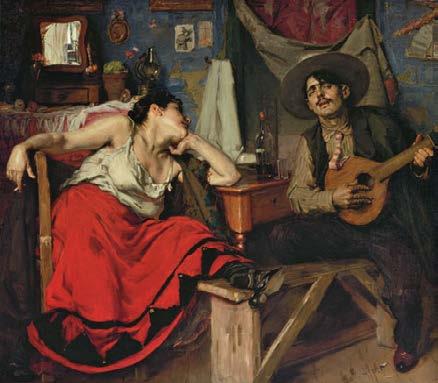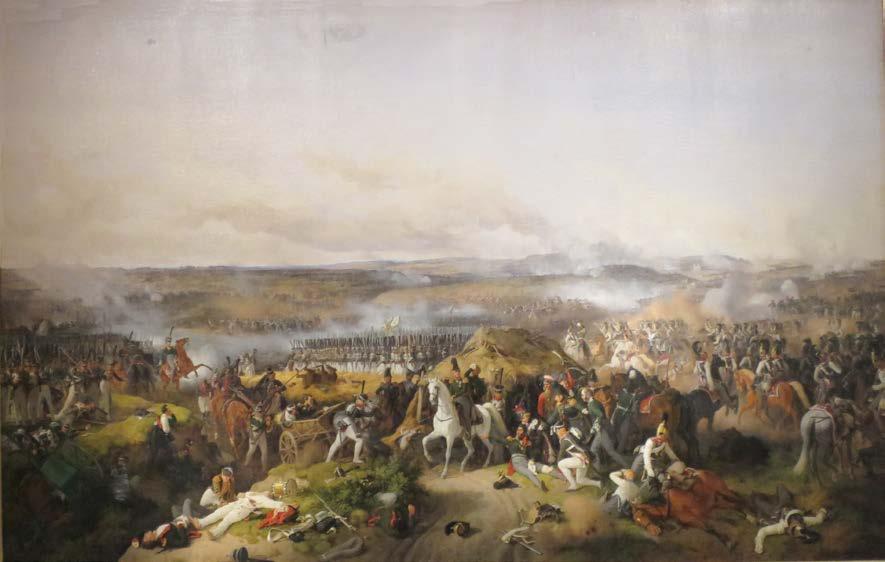
4 minute read
A warm April nap
Walking quietly from Lisbon to Istanbul observing streets and faces
by Pablo Rubio
Advertisement
A bright sun, a breeze from the sea. A sea I could feel, but not see. Lying on the floor, my mind wanders into a tender nap. The dreams are being confused with the memories “floating like a sailboat”. I no longer find myself on a terrace in Thessaloniki in times of quarantine. Now there is the carnival in Lisbon; the rhythm of the river Tagus accompanies the rhythm of my steps. I calmly observe a frenetic city: Fifty provincial people take out ridiculous selfies filling the screens with their dewlaps, hiding the majestic red bridge that covers the background; marriages with more age than the aforementioned bridge, leaving a hole in the back of their BMWs driven by a chauffeur, with faces of stupor and death. Couples dressed as Batman villains and yellow children’s characters groping for the most hidden parts of their bodies, a few meters away from vagabonds, lying on cardboard singing happy songs with a sad voice; Erasmus fighting at the doors of a nightclub for the price of 10 euros for a drink, fighting and then loving each other again; Bread and sausage sellers; Youth dropping balls of tears into the river after break-ups with not very creative attractive Eastern boys in bed; Late night Fado singers; Streets of kings, restless poets, military men with carnations; prostitutes and sailors.
The memories, again, are confused with the monochord photos and the plaques that recite verses from past times. To walk without a destination, to observe, to reflect, is something more than an exercise. It is to unmask your defects and clarify your ideas through the faces that move here and there. It is to be the conductor that no one will ever hear putting instruments in order within a chaotic symphony, at moments improvised and never perfect. Music, sometimes, is a good company. At times it is a silent friend, at others as the perfect tune of the murmur of the city. I stop my steps before a lugubrious church, nailed in golden letters, the word Madredeus. A bucolic voice, from another world, from another time, slips through the large doors.

Spain. Seville. 1992.
Alex Webb © Magnum photos
“Ando...
Numa viagem perdida,
O navio anda à deriva,
Sózinho.”
Portuguese guitars, accordion and bagpipes are transformed into heavy drums. A solemn march that transports me to the cobbled streets of Seville. There is little time left for the Holy Week and the bands rehearse, praising among cornets the centenary Christs carved with pain and blood. Here the music is the basis, a little space for silence. “Jolgorio”, printed costumes, children playing with orange as a ball in porticoed courtyards, Romanis perfumed with lavender and rosemary. It also smells of vice, cannabis, a colony of bourgeois, who break their necks to look at towers higher than their own morals. By the Guadalquivir’s river, I stop, eat sardines and quench my thirst with a tasteless beer. An old toothless man, with skin the colour of wine, stops and sings; he sings as if the words came from his entrails.
“El aire huele a pan Nuevo
El pueblo se despereza”
The murky waters of the Guadalquivir, channel into the foggy Thames. There you can see the grey stone, so perfect that it is repulsive. London is a fair of colours and therefore of thoughts. Tower of Babel. Hordes of well-to-do cannibals roam this great market of the world, in search of those “romantic” and pilgrim images that the films have shown them. I try to escape, but the urge to experiment makes me one of them. The essence has already been lost for a long time. Everything has been swept away, there’s nothing true left. Automatons that escape their cotideanity are more than melted into this web of alienated avenues. Cultural fetishes reflected in faces of gloom and black umbrellas, that neither the brightly coloured glass in large basilicas, nor the neighbourhoods of pupils from far away, calm my uneasiness. Suddenly, amidst the shadows, an imposing figure with a hat and cigar rises up. From its mouth, like the Golem of the Jews, comes a trembling voice.
“Winston Boy
Oh!
There he is
Wasting no time, packing
Alone”
Another metropolis, in which, however, my body flows, divided by a word that sounds like desire and war, the smell of shishas and pistachio Baklava. I walk and hum along a narrow stone street that evaporates the sweat of Romans, Byzantines, Ottomans and Europeans. A child appears and whispers to me “there’s no time”. He runs as the end of the street leads to a small square. Bathed by the January sun, beautiful and exotic birds escape from an orange tree. I hear drowned out murmurs coming from a mosque.

Turkey. Istanbul. 2001. View from a barbershop near Taksim Square.
Alex Webb © Magnum photos
A spontaneous freshness rises, making the hair on my skin bristle. A tender calm, a serene palpitation, the prelude to a disconcerting year. The year of plague and fear, but also of hope and dreams within dreams. I drag my small body to the shores of the Bosphorus, surrounded by faithless fishermen. In front of me, in the distance, that known as the eastern part seems a bad impressionistic picture. The song of the imams, the seagulls and the fishing boats, close my eyes leaving my body hanging. I wake up, dazed, from this sleep. I stand up and an old Italian song comes to me from afar, as if from the sea.
“Cosa vuol dire
Un anno d’amore”
I say to myself “sometimes, better than walking alone, is to dance accompanied”.










